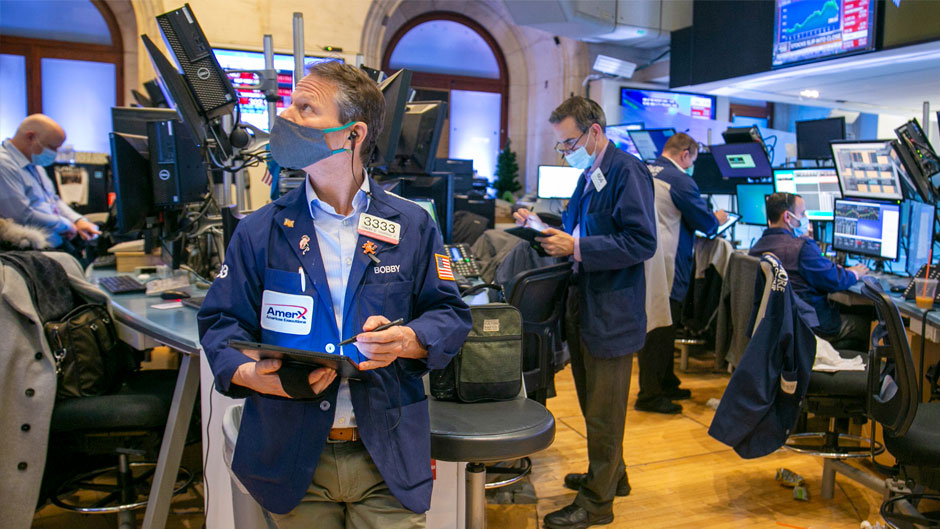Wall Street has experienced a rollercoaster week, with stocks bouncing between highs and lows. The erratic action rattled the markets and investors and left many wondering what is causing this turbulence and what the future holds. Is the volatility a blip on the screen, or a long-anticipated market correction?
Seth Levine, a lecturer in the Department of Accounting at the University of Miami Patti and Allan Herbert Business School, and alumnus Marcelo Zinn, president of Maredin Wealth Advisors, shared their insights on the stock market turbulence.
After Monday’s wild stock market ride, what should we expect in the coming weeks?
Zinn: So much of what will occur over the next several weeks and months is the result of Fed policy in response to inflationary pressures. The Fed is almost solely focused on inflation, as it can create significant volatility on both the economy and stock market. If inflation continues to run hot and the Fed raises rates in response, the stock market will decline further—potentially significantly so—with growth stocks, especially unprofitable ones, getting punished the most.

If inflation has peaked and moderates, the Fed will be more deliberate in raising rates, and the overall market may continue to grind higher.
Is inflation a driver in stock market fluctuations? How does that work?
Levine: Inflation is a driver in so much as it causes the Fed to react using interest rates to maintain stable pricing—one of its two core mandates.
When interest rates rise, the cost of money increases, which makes money more expensive to lend and borrow. This motivates people into "lower risk" assets (like bonds) that offer improved risk-adjusted returns. This generally causes the stock market to react negatively; all investment decisions are relative.
When interest rates decline, the cost of money decreases, which makes money cheaper to lend and borrow, and motivates people into "higher risk" assets like growth stocks to find good returns. This generally causes the stock market to move higher.

Should someone with a modest 401K retirement savings be worried about the volatility?
Zinn: The financial markets are full of opportunities to take advantage of and pitfalls to avoid, irrespective of the economic environment. An investor’s time horizon is far more important than the amount invested. That being said, everyone should have concerns about their retirement savings because the stock market is, historically speaking, significantly elevated and inflation is running hot.
As stated previously, there are good sectors to invest in—and many to avoid. If you know which is which, you’ll be fine both medium- and long-term. If you're nearing retirement, you should think hard about how the market is currently situated and your individual positioning to determine if it makes sense to remain invested.
Real estate prices have soared recently. Stocks are showing signs of weakening. What other investments should people to consider to protect their savings and retirement?
Levine: In some markets, like Florida and Texas, we are seeing a large migration from New York, New Jersey, and California. This is helping to continue driving home prices upwards, but we could see moderation in the coming months and years, depending on Fed policy actions. Real estate is very local. Some markets may continue to move higher, while others decline with rising rates. Real estate can be a good investment today, but like any investment, there's considerable nuance.
Of all the sectors that do well in an inflationary environment, few have performed better than energy, but it's not a blanket investment as there are various risks here as well. While history is a guide, as Mark Twain once famously said: "History doesn't repeat, but it does rhyme." We believe energy will do well, but there is no guarantee considering how dependent it can be on global economic conditions.
What’s to blame for all this? Just the pandemic?
Zinn: People underestimate how much effect the Fed has on markets, both short- and long-term. The pandemic caused the Fed to react strongly, as did all branches of the government. Printing more than $4 trillion in 18 months has consequences. After enjoying the asset price jump, we’re now witnessing the negative side of this capital injection.

